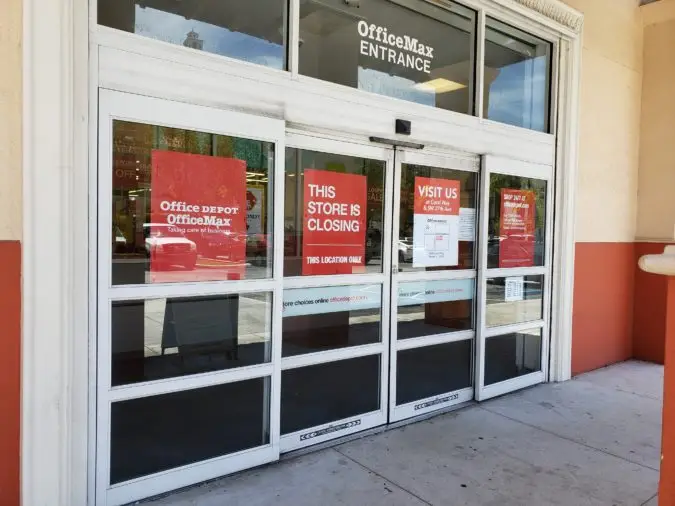In recent weeks, rumors swirled that Burger King, the fast-food giant known for its flame-grilled Whopper, was planning to shut down completely. These claims were quickly debunked, but there’s no denying the chain is undergoing a significant transformation. With a plan to close hundreds of underperforming locations, Burger King is investing heavily in a $400 million rebranding initiative called “Reclaim the Flame.” The goal? To rejuvenate the brand, modernize its operations, and regain its competitive edge in the crowded fast-food industry.
What’s Happening?
Burger King’s parent company, Restaurant Brands International (RBI), announced that it would close approximately 400 underperforming locations across the United States. While closures may sound alarming, they are a calculated move to streamline operations and focus resources on franchises that meet performance standards.
At the same time, the chain is investing in upgrading and modernizing 3,000 locations by 2026. This dual approach allows the company to shed struggling stores while enhancing the customer experience at thriving ones. By concentrating efforts on its strongest locations, Burger King aims to position itself as a modern, efficient competitor to fast-food heavyweights like McDonald’s, Wendy’s, Five Guys, and Shake Shack.
Reclaim the Flame: A $400 Million Revamp
The “Reclaim the Flame” initiative is a comprehensive strategy designed to revitalize the brand. With a hefty $400 million budget, the campaign includes advertising, menu innovation, and technological advancements, all aimed at improving profitability and customer satisfaction.
Here’s what’s changing:
Technological Upgrades
To meet the demands of tech-savvy consumers, Burger King plans to introduce advanced delivery systems and innovative tech solutions. For instance, enhanced mobile ordering and payment options will streamline the ordering process, making it faster and more convenient for customers.
Modernized Drive-Thrus
One of the most exciting changes is the introduction of three-lane drive-thru systems. These are designed to reduce wait times and accommodate the increasing demand for drive-thru and curbside pickups. With faster service and greater capacity, Burger King hopes to capture more business from on-the-go diners.
Kitchen Enhancements
Behind the scenes, kitchens will undergo significant upgrades to improve efficiency and consistency in food preparation. These changes will ensure that customers receive their meals quickly without compromising the quality Burger King is known for.
Physical Renovations
The campaign includes extensive renovations to the interior and exterior of restaurants. Sleek, modern designs will create a more inviting atmosphere for diners, aligning with contemporary tastes and trends.
Why Now?
The fast-food industry is fiercely competitive, and companies must continuously adapt to stay relevant. Burger King has faced challenges in recent years, including declining sales and stiff competition from rivals. Recognizing the need for change, the company is taking bold steps to address these issues head-on.
By closing underperforming locations, Burger King can redirect resources to its strongest franchises, ensuring they have the tools and support needed to succeed. Meanwhile, the extensive modernization efforts are designed to attract new customers and retain loyal ones by offering a better dining experience.
The Competitive Landscape
Burger King’s rebranding initiative is also a response to the growing dominance of competitors. McDonald’s, for example, has been a leader in innovation, introducing touch-screen kiosks, mobile ordering, and loyalty programs that keep customers coming back. Wendy’s has also gained traction with its fresh, made-to-order menu and strong presence on social media. Meanwhile, premium fast-casual brands like Five Guys and Shake Shack have carved out a niche by offering high-quality, customizable options.
Burger King’s challenge is to balance its identity as a value-driven fast-food chain with the need to innovate and elevate its offerings. “Reclaim the Flame” is an attempt to strike that balance, leveraging the brand’s iconic flame-grilled flavor while embracing modern consumer preferences.
Early Results and Optimism
Although the rebranding campaign is still in its early stages, Burger King’s leadership is optimistic about its potential. The company reports that initial investments in advertising and restaurant upgrades are already yielding positive results, with increased foot traffic and higher sales at revamped locations.
The success of “Reclaim the Flame” will depend on how effectively Burger King executes its plans and whether it can differentiate itself in a crowded market. With its focus on innovation and customer experience, the chain is well-positioned to make a comeback.
Looking Ahead
As Burger King works to modernize its operations and reinvigorate its brand, the stakes couldn’t be higher. The fast-food industry is evolving rapidly, and companies that fail to adapt risk being left behind. Burger King’s decision to close underperforming locations may be difficult in the short term, but it’s a necessary step to ensure long-term success.
The improvements planned under “Reclaim the Flame” promise to deliver a faster, more convenient, and enjoyable experience for customers. Whether it’s through technological enhancements, sleek restaurant designs, or streamlined operations, Burger King is clearly committed to meeting the needs of today’s diners.
For loyal fans of the Whopper, the future looks bright. While the closures may be a disappointment for some, the broader vision of a revitalized Burger King offers plenty of reasons for optimism. By focusing on its strengths and embracing change, the chain is poised to reclaim its place as a leader in the fast-food industry.

